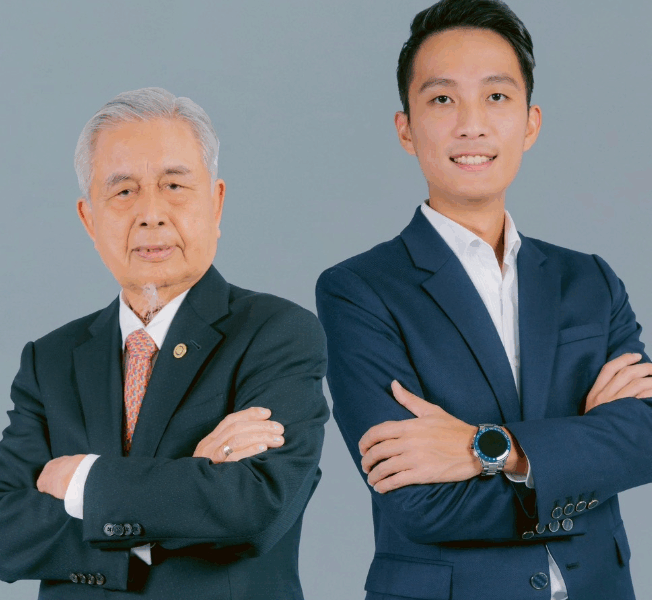NEWS
- Home
- Investing NT$300 Million in Diaper Recycling and Regeneration, YICHUN Environmental Tech Aims for Emerging Stock Market Listing in 5 Years

Investing NT$300 Million in Diaper Recycling and Regeneration, YICHUN Environmental Tech Aims for Emerging Stock Market Listing in 5 Years
“When I suddenly said I wanted to start a business, my father simply said, ‘It’s okay, go ahead and give it a try.’”
He explained that regardless of its commercial value, diaper recycling and regeneration is something inherently meaningful.
At first, his idea was simple—he prepared NT$30 million to start the business.
“That was the maximum acceptable loss,” he said. “For a startup, it was a reasonable cap.”
He stated plainly: “Many businesses are like this—sometimes you have to go all in to succeed.”
But he hadn’t expected the road to be so difficult.
First of all, diapers fall under a government-regulated special industry. To recycle them, official permission is required. Secondly, because diapers are considered “non-recyclable,” there were no existing legal frameworks to support the effort.
Yet the amount of diapers used in Taiwan is enormous. On average, households generate about 1,400 tons of waste diapers per day—over 400 tons of which come from long-term care institutions.
Taiwan’s current method is to incinerate them. But due to the high moisture content from bodily waste absorption, diapers are difficult to burn and place heavy stress on incinerators, generating excessive carbon emissions.
Abroad, used diapers are broken down and repurposed into fuel rods or their paper fibers are extracted for reuse.
In Taiwan, however, no company was recycling diaper materials for reuse—until YI CHUN Environmental Technology was founded. Starting from scratch, even the machinery had to be custom-built with suppliers. The initial NT$30 million investment was quickly burned through.
Despite this, founder Hsi-Chun Ching saw long-term potential in the industry and continued pouring in capital.
“This had never been done before in Taiwan—there was no one to follow. We had to figure out every step ourselves. Just building a processing plant took three years, filled with constant trial and error.”
He gave an example: diapers have a strong odor, so the first step was removing foreign objects, followed by six patented tunnel-style washing tanks. These used ozone, enzymes, and proprietary bacterial strains for sterilization and deodorization. The process combined biological treatment (using live cultures to break down ammonia and nitrogen), chemical processing, and sedimentation.
“Our goal is to move toward full automation,” he said. “We had to design a lot of the electronic control systems and visual recognition ourselves. We could only find similar machines and think about how to modify them.”
Laughing, he added, “We dove in headfirst and never expected so many surprises along the way.”
To date, over NT$300 million has been invested.
Fortunately, the effort began to bear fruit.
“I started before the UN even announced the SDGs. When the validation period was ending, people just began talking about carbon credits. What we’re doing now fits perfectly with global trends.”
Now only 28, Ching said, “When you’re riding the wave, even a pig can fly. What we’re doing has twice the impact with half the effort.”
In the beginning, YI CHUN focused on collecting used diapers from long-term care centers, which could be gathered more efficiently—about 400 tons per day.
“We’re planning to expand to Japan, Europe, and other countries in the future,” he emphasized.
“My father is also a pioneer by nature.”
Hsi-Chun Ching’s father is Chia-Hung Ching, chairman of the YI CHOU Group. He moved from Sanxia to Taipei and started with just NT$5,000 given by his mother. At 18, he founded a small oil business, which in 1975 became YI CHOU Chemical, focusing on lubricants and insulation oils. The company later expanded into gas stations and marine refueling.
Ching recalled how, in a bold move to push the government to legalize privately-run gas stations, his father moved the whole family into an apartment above a gas station for many years to prove it was safe.
As the youngest in the family, born when his father was over 60, Ching was deeply cherished.
“My biggest hobby as a kid was driving. When I was four, my dad would take me driving and let me hold the steering wheel.”
On the day he turned 18, he immediately enrolled in driving school and got his license as fast as possible.
He became a race car driver due to a twist of fate three and a half years ago.
One day while driving in the mountains, his car suddenly lost control. That near-death experience humbled him and unexpectedly led him into the world of racing.
“I wanted to improve my driving, so I enrolled in classes on drift and loss-of-control driving techniques.”
He turned out to have a natural talent—quickly mastering maneuvers like spinning the car mid-drift.
“After just three lessons, my coach said, ‘There’s a race coming up in two weeks, and the team needs one more driver. Want to give it a shot?’”
He did—and never looked back.
“Like all competitive sports, racing lights up your adrenaline and stirs up the hero inside,” he said. “It was my childhood dream come true.”
He went on to become the TDGP Taiwan Drift Champion and saw great potential in motorsports. He became a major shareholder in the TDGP series, and in March founded SilverMist Sports Marketing, aiming to launch:
A racing academy
A vehicle modification shop
An international trade platform
“In racing, as in business, just a little improvement can help you overtake your rivals,” he shared. He hopes to carry that same spirit forward as he continues growing YI CHUN.

